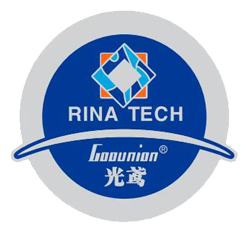The Importance of Material Selection in Light Guide Plate Manufacturing
Light guide plates (LGPs) are an essential component in the manufacturing of liquid crystal displays (LCDs) and organic light-emitting diode (OLED) screens. They are responsible for distributing light evenly across the display surface, providing a clear and vibrant image. Material selection is crucial in the production of LGPs, as it directly affects the performance and quality of the final product.
There are several factors to consider when selecting materials for LGP manufacturing. These include light transmission efficiency, light scattering properties, thermal stability, and durability. The ideal material should have high light transmission efficiency, low light scattering, and be able to withstand high temperatures and prolonged use without degradation.
One of the most popular materials used in LGPs manufacturing is acrylic. Acrylic is a lightweight, durable, and cost-effective material that has excellent light transmission properties. It is also easy to mold into complex shapes, making it ideal for creating custom LGPs. However, acrylic is prone to yellowing over time, which can affect the quality of the display.
Another material commonly used in LGPs manufacturing is polycarbonate. Polycarbonate is a strong and durable material that can withstand high temperatures and impact. It also has excellent light transmission properties and is resistant to yellowing. However, polycarbonate is more expensive than acrylic and can be difficult to mold into complex shapes.
In recent years, manufacturers have been exploring new materials for LGPs production, such as glass and silicone. Glass has excellent light transmission properties and is highly resistant to yellowing, making it an attractive option for high-end displays. However, glass is heavy and brittle, which can make it difficult to work with and more prone to breakage. Silicone, on the other hand, is a flexible and lightweight material that can be molded into complex shapes. It also has good thermal stability and is resistant to yellowing. However, silicone can be more expensive than other materials and may not be suitable for all applications.
When selecting materials for LGPs manufacturing, it is important to consider the specific requirements of the application. For example, displays used in outdoor environments may require materials that are more resistant to UV radiation and extreme temperatures. Similarly, displays used in medical or military applications may require materials that are more durable and resistant to impact.
One company that has been at the forefront of LGPs manufacturing is RINA TECH, based in Shenzhen, China. RINA TECH produces a range of products, including polarizer film and high gamut quantum film, which are sold globally for use in LCDs and OLED screens. The company has been investing heavily in research and development to create new materials for LGPs production that offer improved performance and durability.
The future of LGPs manufacturing looks bright, with demand for high-quality displays continuing to grow across a range of industries. As technology advances and new applications emerge, manufacturers will need to continue to innovate and develop new materials that meet the specific requirements of each application.
In conclusion, material selection is a critical factor in LGPs manufacturing that directly affects the performance and quality of the final product. Manufacturers must carefully consider the specific requirements of each application when selecting materials and continue to innovate and develop new materials as technology advances. Companies like RINA TECH are leading the way in LGPs production, offering high-quality products that are sold globally and driving innovation in the industry.
For more about LGPs products application case video, welcome you visit: RINA TECH Youtube Channel, thank you.
